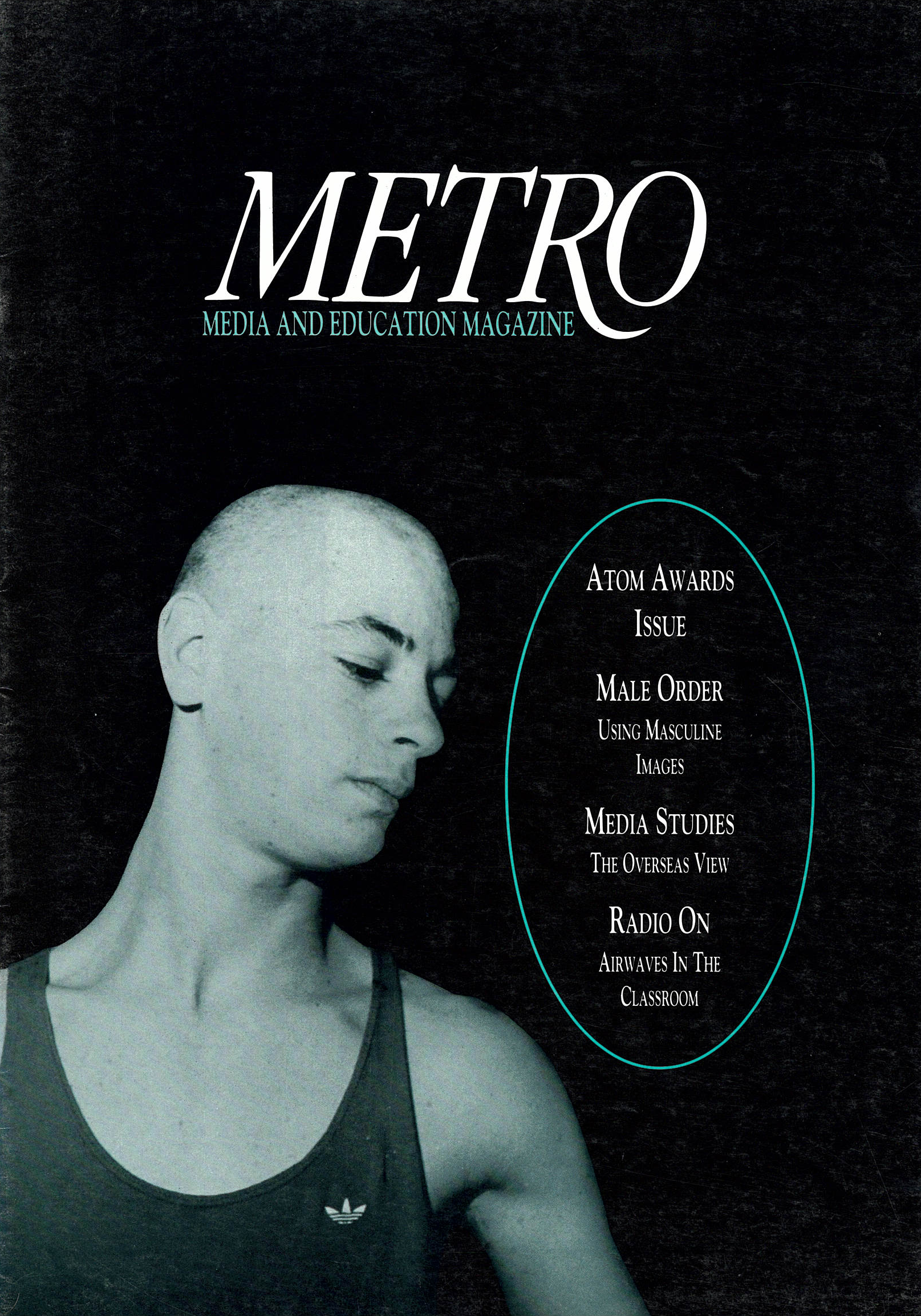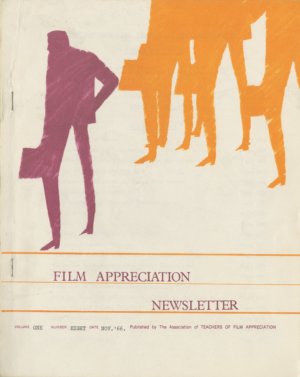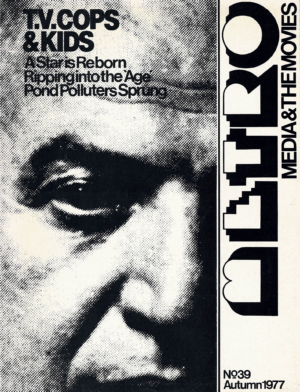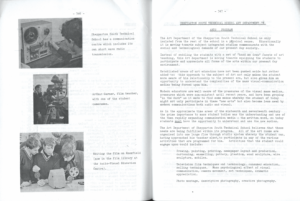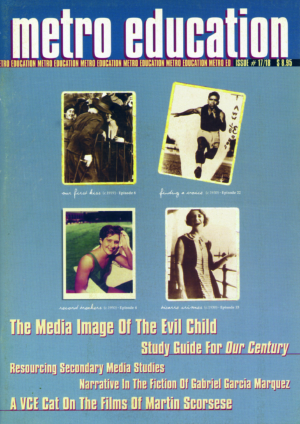I was offered the job of editing and running Metro in late 1988, originally for just two to three days a week. At the time, I was working at Cinema Papers as joint editor with Philippa Hawker. Prior to that, I had edited and published Filmviews magazine, and worked in distribution at the Australian Film Institute (AFI) and at the State Film Centre of Victoria.
The Metro offer was interesting. I had always been passionate about film and media education. Metro was an established, well-produced and respected publication with an engaged readership of Victorian media teachers. I saw the potential to build a wider readership and increase the use of Australian films in education, so I took the job. I then approached a number of friends and colleagues whom I had worked with at Filmviews and Cinema Papers to form an editorial board to help with planning content and commissioning writers. I certainly didn’t expect to still be at Metro/ATOM thirty years later!
During the 1980s and 1990s, a large proportion of the films that were being used in education were foreign titles. Many teachers and others, including myself, felt that Australian students should be watching programs produced by Australians about Australia. To encourage this, we decided to cover only Australasian film and television in Metro. The idea was to be geographically specific, so as to build a reputation for Metro’s analysis of Australian titles and to contribute to the recognition and growth of the Australian industry.
By 1995, the editorial team felt we couldn’t cover films with strong educational content alongside Australian and New Zealand features in enough depth in Metro alone. We needed another magazine dedicated to education and ways film could be used effectively in the classroom, so we launched Metro Education, which soon morphed into Screen Education. Additionally, ATOM broadened the scope of the magazines and entered into creative partnerships with organisations such as the National Film and Sound Archive of Australia, the AFI, the Australian Film Television and Radio School, the Australian Children’s Television Foundation, the Australian Centre for the Moving Image, the ABC, SBS, Fairfax, the Melbourne and Sydney film festivals, and other subject associations.
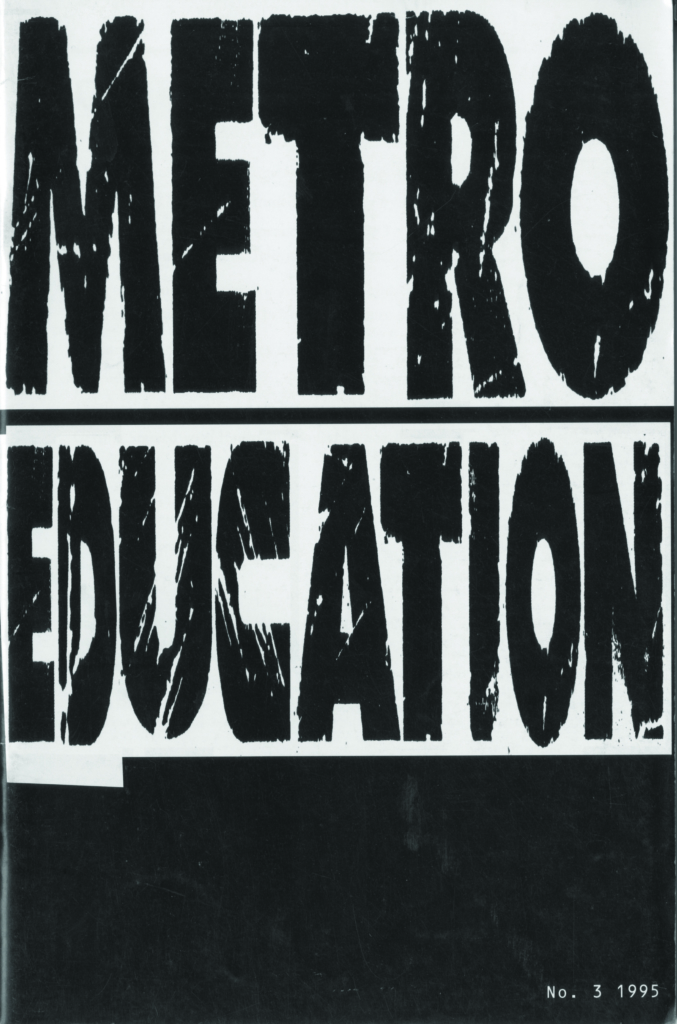
Also around this time, I decided to introduce some younger editors and assistant editors to take over the production of the magazines. I became the managing editor and worked on creating other revenue streams. This decision injected vitality into the ATOM office. In the years following, I had the pleasure of working with a number of very talented, passionate and hardworking people who contributed enormously to the success and growth of both publications – people like Raffaele Caputo, Kate Raynor, Liz Conor, Zoe Tovey, Natalie Book, John Marnell, Nick Tapper and Greta Parry, most of whom have carved out impressive careers in the publishing industry after working at ATOM.
During the late 1990s and early 2000s, we were lucky enough to receive funding from Screen Australia (then the Australian Film Commission) and Film Victoria. However, I could see the writing on the wall regarding long-term funding from these government bodies, and I knew ATOM had to diversify if the magazines were to survive.
One of the ways we have done this is through EBSCO, a leading international provider of subscriptions for magazines. While EBSCO already handled about 45 per cent of our subscriptions, in the early 1990s it also began selling digital copies of individual articles. When I received our first EBSCO yearly report, I was amazed to see there were a couple of thousand downloads in North America – and from then on, each year, the downloads just kept increasing. This was the first confirmation that Australian educational material was of interest beyond Australian shores. It meant we were not only spreading the word about Australian screen productions, but also encouraging their purchase overseas, in turn enabling more money to go back to Australian filmmakers. But this created a new dilemma: how could we receive a better payment for Metro and Screen Education articles?
Despite some financial bumps from time to time, we proudly pay all of our contributors. In 2018, ATOM paid over A$200,000 to Australian freelance writers and A$100,000 back to producers and other third parties whose products we market through The Education Shop.
ATOM is a lean and transparent organisation. Working from a small office with a staff of seven, and with a stable of talented freelance writers, we have grown from our ATFA/ATFAV beginnings and take pride in what we produce and the programs we run. Besides the publishing of Metro and Screen Education, ATOM:
• has built The Education Shop
• produces seventy-plus study guides a year
• has created opt-in email lists (with over 140,000 subscribers) promoting both ATOM’s work and Australian screen content
• continues to run the ATOM Awards
• has launched the 1-Minute Film Competition, the ATOM Photo Comp and the Front Page newspaper competition.
How has ATOM been able to achieve this? First and foremost, through the hard work of all its staff and board members over its fifty-six-year history. There are so many people to thank, it’s impossible to name them all: the friends and colleagues who agreed to be on editorial boards for both Metro and Screen Education in the late 1980s and early 1990s; the funding agencies that helped support ATOM for more than fifteen years; the magazine and study guide writers, who are the main contributors to the success of ATOM; and the individuals and companies who have supported the magazines with advertising over its many years. Of course, I would like to thank the current editor of Metro,Adolfo Aranjuez, as well as the editor of Screen Education, David Heslin, for their outstanding work. I must give particular mention to Metro’s art director, Pascale van Breugel, whose flair for design has been integral to the magazine’s evolving look and character over the past nineteen years (and counting). And two others who must be mentioned are Zak Hamer and David Eedle, for their work on The Education Shop, awards and competitions.
Metro and Screen Education are rare; not many screen or media magazines across the world publish such extensive articles and are so beautifully designed and printed. It has been a privilege to work with so many talented, generous and dedicated writers and educators as well as passionate and inspired filmmakers to bring media education and Australian screen content to a wider audience.
